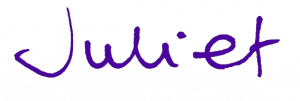Kia ora koutou,
Since taking up the role of Chief Science Advisor to the Prime Minister in 2018, I have had the privilege to see first-hand the enormous difference that scientists can make in a crisis. Be it tackling a biosecurity incursion, supporting victims of disaster, responding to natural disasters, or understanding an emerging pandemic-causing virus, scientists have stepped up in a way that has earned support and respect from their fellow citizens, who were kept informed in a highly uncertain environment.
Communicating scientific information and the uncertainties around it to decision makers is always challenging. Doing so in a crisis is even more so. Communicating risk and uncertainty without engendering panic is a very special skill, which in an emergency must be deployed under pressure and at pace. This requires that decision makers have direct access to scientists who are supported to offer their best analysis of a situation in real time, including the level of uncertainty. The information needs to be conveyed in a clear fashion which enables decision makers to make the best evidence-informed decisions as the situation develops.
Attempts to limit access to science through institutional or other barriers and preventing scientists from giving their free and frank advice in emergency situations – for example through fear of legal or career consequences – places a handicap on good decision making by our officials and politicians. Only by being able to access all the available knowledge, including its level of uncertainty and whether it is disputed, can decision makers effectively weigh up the possible consequences of the paths forward, guided by the best evidence.
Inhibiting science advice risks officials working in the dark, often basing decisions on their own, more limited and potentially flawed understanding of the science. In jurisdictions where political or institutional considerations have led to scientists being unable or unwilling to give free advice, this has had dire consequences for decisions and decision makers. The experience of the prosecution of scientists following the earthquake in L’Aquila, Italy showed the world the damage that can be caused by misunderstanding the role of science advice. Their eventual exoneration was a relief to the global scientific community, who had been fearful of providing advice in the interim.
This is a lesson that Aotearoa New Zealand must heed. Our scientists have to be enabled to offer appropriate, free and frank advice on scientific issues to decision makers, who can take into account political, economic and other factors as they decide upon the course of action – especially in the case of emergencies. Only then will we be able to add to our record of seeing the positive impact of good science advice in management of issues such as Mycoplasma bovis, the response to the Kaikōura and Christchurch earthquakes, the fires in the Port Hills in Christchurch, and COVID-19.
Any barriers to accessing our best science will inevitably dampen the country’s ability to respond to the next biosecurity incursion, natural disaster, or pandemic. More than ever, we must listen to our scientists, and ensure that our institutional structures allow them to speak.
Noho ora mai,

